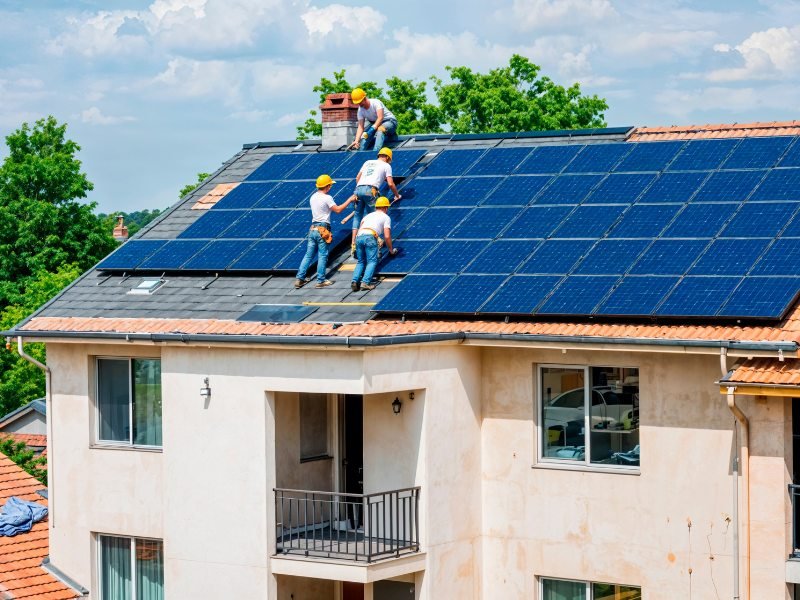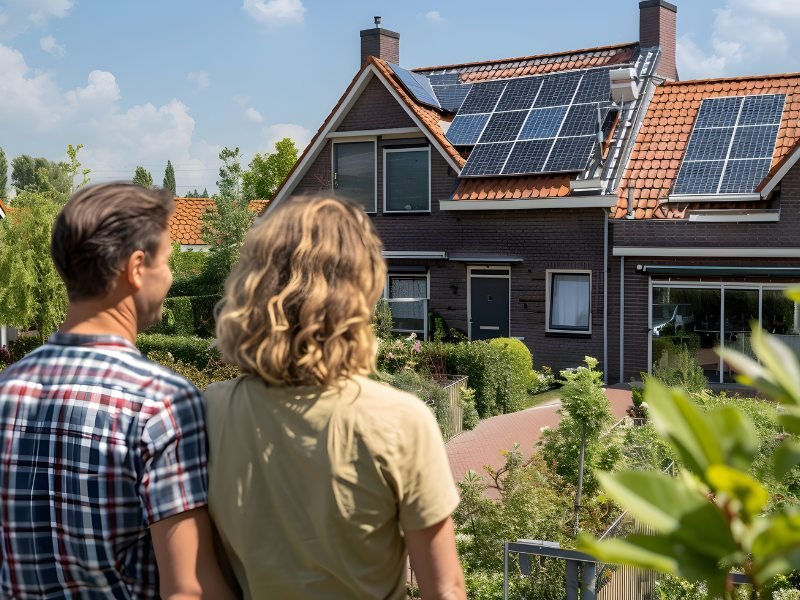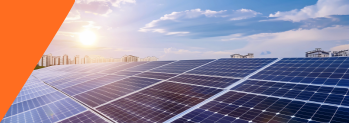Solar collectors are essential for using solar energy, converting sunlight into usable heat or electricity. Driven by government initiatives like PM-KUSUM, Jawaharlal Nehru National Solar Mission (JNNSM), and other environmental concerns, solar energy has gained popularity in India, and choosing the right solar collector is more important than ever. With abundant sunlight and increasing awareness, solar collectors are becoming a common sight in Indian homes, industries, and agricultural sectors. Understanding the different types of solar collectors will help you make an informed decision for your energy needs.
What is a Solar Collector?
A solar collector is a device that captures sunlight and converts it into heat or electricity. The heat generated can be used for various purposes, like heating water, space heating, or even generating electricity through solar thermal systems. In India, solar collectors are widely used for residential, commercial, and industrial purposes due to their energy-saving capabilities and environmental benefits.
With India’s sunny climate, solar collectors are a valuable investment for reducing energy costs and contributing to a sustainable future.
Importance of Solar Collectors in India
Solar collectors offer significant advantages, especially in India due to its hot climate. These devices help reduce energy bills, provide a sustainable alternative to fossil fuels, and have a low environmental impact. The Indian government is actively promoting solar energy through schemes like the PM-KUSUM Scheme, which encourages solar adoption, especially in rural areas.
Solar collectors are not only valuable in urban homes but also in rural settings, where they can be used for agricultural purposes like crop drying. Government subsidies make it easier for people to adopt this technology, contributing to energy security in both rural and urban India.
Different Types of Solar Collectors
There are various types of solar collectors available, each suited for different applications. Let’s explore the most common ones:
1. Flat Plate Collectors (FPCs)
Foldable solar panels aren’t just for outdoor adventures. They’re also a great resource during emergencies. When the power goes out due to storms or other unexpected events, these panels provide a reliable backup source of energy to charge essential devices.
2. Evacuated Tube Collectors (ETCs)
Evacuated Tube Collectors are more efficient than Flat Plate Collectors, especially in colder regions of India. They can work efficiently even on cloudy days, making them perfect for winters or regions like North India. ETCs are suitable for both industrial and residential applications due to their higher efficiency and reliability.
3. Solar Air Collectors
Solar Air Collectors are designed to heat air rather than water, making them useful for space heating, ventilation systems, or drying crops. In agricultural settings, especially for farmers in India, Solar Air Collectors provide an efficient crop drying solution, helping to reduce crop spoilage due to humidity.
4. Concentrating Solar Collectors (CSP)
Concentrating Solar Collectors use mirrors or lenses to focus sunlight onto a small area. This technology is typically used for large-scale power generation, such as in solar power plants. While CSP systems are more advanced and costly, they have the potential for future large-scale projects in India as technology costs come down.
Comparison of Different Solar Collectors
This table highlights the key differences between each solar collector, making it easier to choose the one that suits your specific needs.
| Solar Collector Types | Efficiency | Cost | Best For | Suitability |
|---|---|---|---|---|
| Flat Plate Collectors | Moderate | Affordable | Household water heating | Warm Climate, Domestic Use |
| Evacuated Tube Collectors | High | Mid Range | Cold climates, Industrial, and Residential | Cold climate, Cloudy Areas |
| Solar Air Collectors | Moderate | Affordable | Space heating, crop drying | Agricultural Settings |
| Concentrating Solar Collectors | Very High | Expensive | Large-scale power plants | High sunlight areas, Industrial |
How to Choose the Right Solar Collector for Your Needs?
Choosing the right solar collector depends on your specific requirements :
Consider factors like cost, efficiency, space availability, and your region’s climate when selecting a solar collector for your needs.


Benefits of Using Solar Collectors in India
Using solar collectors in India offers numerous long-term benefits:
Choosing the right solar collector depends on your specific needs and regional climate. With India’s vast sunlight resources, adopting solar collectors offers both financial and environmental benefits. Whether you need hot water for your home or a large-scale solar solution for industrial use, there’s a solar collector that fits your requirements.
Beyond individual use, adopting solar collectors brings broader financial and environmental benefits. Not only do they help reduce electricity bills and dependence on fossil fuels, but they also align with India’s goals of promoting clean, renewable energy. Government incentives and subsidies further ease the financial burden of installation, making solar energy accessible to more people across both urban and rural areas. By investing in the right solar collector, you’re not just making a smart, long-term investment, you’re also playing a part in creating a more sustainable and energy-secure future for India.




